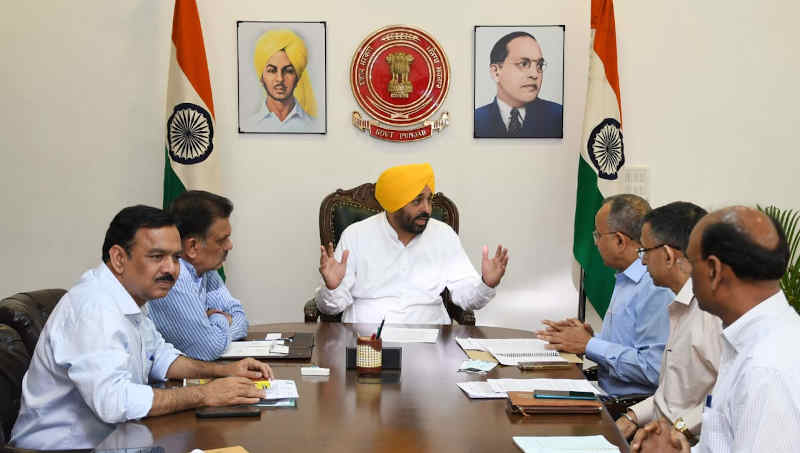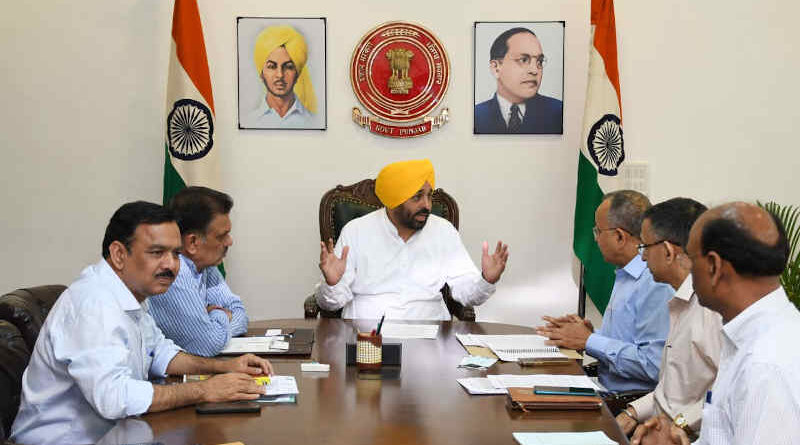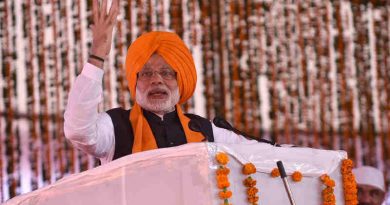Punjab’s Land Pooling Policy Sparks Heated Controversy Amid Farmer Protests

Punjab’s Land Pooling Policy Sparks Heated Controversy Amid Farmer Protests
RMN New Report Highlights:
Punjab’s Land Pooling Policy, 2025, aims to pool 40,000 acres for urban development in 27 cities, offering farmers developed plots in return.
Farmer unions and opposition parties, including SKM, Congress, and BJP, criticize the policy as a “land grab,” fearing loss of farmland and livelihoods.
Protests escalate with a planned tractor march on July 30, as farmers demand transparency and stronger safeguards.
The AAP government defends the voluntary policy, claiming it benefits farmers as stakeholders in sustainable urban growth.
Chandigarh, July 20, 2025 – The Punjab government’s Land Pooling Policy, 2025, introduced to promote planned urban development, has ignited fierce debate across the state, with farmers, opposition parties, and farmer unions raising strong objections.
The policy, which aims to pool over 40,000 acres of farmland for urban projects in 27 cities, including Ludhiana, Mohali, and Amritsar, has been criticized as a potential threat to agricultural livelihoods, despite government claims of its voluntary nature and farmer-friendly incentives.
Under the policy, landowners who voluntarily contribute land receive developed residential and commercial plots in return. For every acre pooled, farmers are promised a 1,000-square-yard residential plot and a 200-square-yard commercial plot, with larger contributions yielding proportionally bigger parcels.
The government, led by Chief Minister Bhagwant Mann, asserts that the policy ensures no forced acquisitions, offers yearly rent for three years until projects are developed, and aims to curb illegal colonies while fostering sustainable urban growth.
Mann has emphasized that the policy positions farmers as stakeholders in development, providing them with long-term economic benefits as agriculture becomes less profitable.
RELATED REPORTS
[ Punjab’s Hidden Billions: Majithia Arrest Exposes Drug Money Web ]
[ ਪੰਜਾਬ ਦੀ ਨਵੀਂ ਭੂਮੀ ਪੂਲਿੰਗ ਨੀਤੀ: ਆਡੀਓ ਵਿਸ਼ਲੇਸ਼ਣ ]
However, opposition parties and farmer unions have labeled the policy a “land grab” designed to benefit large private developers. Critics argue that it risks displacing small and marginal farmers, converting fertile farmland into real estate zones, and altering Punjab’s rural economy.
The policy’s lack of safeguards, compared to the Central Land Acquisition Act, 2013, has fueled fears of inadequate compensation and loss of livelihoods. An all-party meeting convened by Sanyukta Kisan Morcha (SKM) on July 18, attended by Congress, Akali Dal, BJP, and Left parties—excluding the ruling Aam Aadmi Party (AAP)—resolved to launch agitations, including a tractor march planned for July 30, to oppose the policy.
Farmers, particularly from Ludhiana, Jalandhar, Phagwara, and Hoshiarpur, have mobilized protests, expressing skepticism based on past experiences where land surrendered for development yielded poor returns. Gram sabha resolutions and widespread demonstrations underscore the growing discontent.
The AAP government, however, claims strong farmer support, with some landowners reportedly embracing the policy’s voluntary framework and potential for urban-scale amenities. Finance Minister Harpal Singh Cheema has defended the policy, asserting that it operates on mutual consent and eliminates private middlemen, ensuring direct engagement between farmers and the state.
As protests intensify, the debate highlights the tension between Punjab’s urban development ambitions and the preservation of its agricultural heritage. With over 65,000 acres of prime farmland notified, potentially affecting more than 50 villages, the policy’s implementation remains a contentious issue, with opposition parties vowing legal challenges and farmers demanding greater transparency and protections.
💛 Support Independent Journalism
If you find RMN News useful, please consider supporting us.




